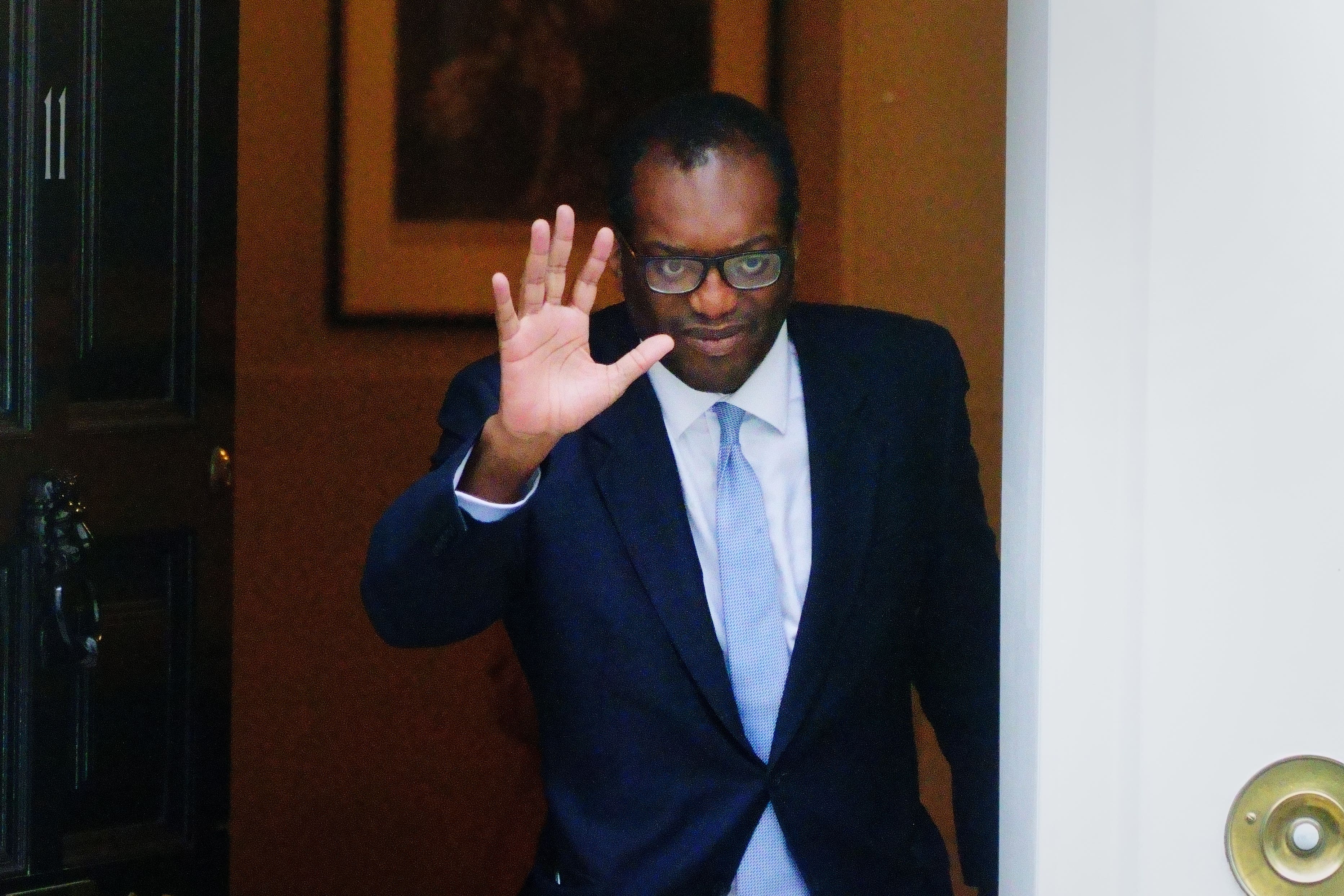Liz Truss launches comeback after disastrous premiership claiming failed policies were right
UK’s shortest-serving prime minister has written 4,000 word essay that continues to defend catastrophic economic policy

Liz Truss has broken her silence following her disastrous stint as Prime Minister, blaming the “economic establishment” and her own Conservative Party for her downfall.
Ms Truss’s brief premiership lasted just 49 days as she was forced to quit after Kwasi Kwarteng’s £45 billion package of unfunded tax cuts panicked the markets and tanked the pound. The UK’s stock and bond markets lost an estimated $500 billion in value in the weeks after she took over from Boris Johnson last September, and the Bank of England was forced to take emergency measures to stabilise the economy.
In a 4,000-word essay she now says that while she was not “blameless” over the way her chancellor Mr Kwarteng’s infamous mini-budget catastrophically unravelled, still believes her approach to driving growth was the right one.

While not mentioning Rishi Sunak by name, she also takes a swipe at her successor and his increase of corporation tax from 19 per cent to 25 per cent, branding his policy “economically detrimental”.
In her first detailed comments since leaving office last year, writing in the Sunday Telegraph, she said: “I am not claiming to be blameless in what happened, but fundamentally I was not given a realistic chance to enact my policies by a very powerful economic establishment, coupled with a lack of political support.
“I assumed upon entering Downing Street that my mandate would be respected and accepted,” she continued. “How wrong I was. While I anticipated resistance to my programme from the system, I underestimated the extent of it.
“Similarly, I underestimated the resistance inside the Conservative parliamentary party to move to a lower-tax, less-regulated economy.”
Ms Truss said that while her experience last autumn was “bruising for me personally”, she believed that over the medium-term her policies would have increased growth and therefore brought down debt.
However, she claimed she had not been warned of the risks to the bond markets from liability-driven investments (LDIs) – bought up by pension funds – which forced the Bank of England to step in to prevent them collapsing as the cost of government borrowing soared.

In the wake of the mini-budget, she complained that the Government was made a “scapegoat” for developments that had been brewing for some time.
“Only now can I appreciate what a delicate tinderbox we were dealing with in respect of the LDIs,” she said.
Ms Truss criticised Whitehall’s “strength of economic orthodoxy and its influence on the market” and condemned Treasury officials for blindsiding her on the collapse of the pension market.
Ms Truss also accuses the Office for Budget Responsibility (OBR) of putting fiscal policy in a “straightjacket” and disagreed with its assessment of the impact of her proposed tax cuts.
In her essay, she says the OBR “tends to undervalue the benefits of low taxes and supply-side reforms for economic growth and overvalue the benefits of public spending”.

“This inevitably puts pressure on a higher-tax and higher-spend outcome – hence the inexorable tax rises we are now seeing,” she added.
Ms Truss said that her and Mr Kwarteng’s plan for growth – with its combination of tax cuts and deregulation to kickstart the stalled economy – had represented a conscious break with the “left-wards” drift of economic thinking, which was resented by some powerful forces.
“Frankly, we were also pushing water uphill,” she said. “Large parts of the media and the wider public sphere had become unfamiliar with key arguments about tax and economic policy and over time sentiment had shifted left-wards.”
She said the furore over her plan to abolish the 45p top rate of income tax – not least from within her own party – was illustrative of the difficulties she faced.
“Even though the measure was economically sound, I underestimated the political backlash I would face, which focused almost entirely on the ‘optics’,” she said.
Ms Truss resigned as prime minister after just weeks in office, making her the shortest-serving prime minister in the history of the United Kingdom. The former PM had won a leadership battle against Mr Sunak last summer on a low tax, high growth agenda.

The lengthy editorial has been met with criticism, with opponents reminding Ms Truss of the damage they say she did in just a matter of weeks of running the country.
The Tory peer Lord Barwell, who was Theresa May’s chief of staff, was scathing about Ms Truss’s explanation for the failure of her premiership.
“You were brought down because in a matter of weeks you lost the confidence of the financial markets, the electorate and your own MPs,” he tweeted.
“During a profound cost of living crisis, you thought it was a priority to cut tax for the richest people in the country.”
For Labour, shadow chancellor Rachel Reeves said: “The Conservatives crashed the economy, sank the pound, put pensions in peril and made working people pay the price through higher mortgages for years to come.
“After 13 years of low growth, squeezed wages and higher taxes under the Tories, only Labour offers the leadership and ideas to fix our economy and to get it growing.”






Join our commenting forum
Join thought-provoking conversations, follow other Independent readers and see their replies
Comments